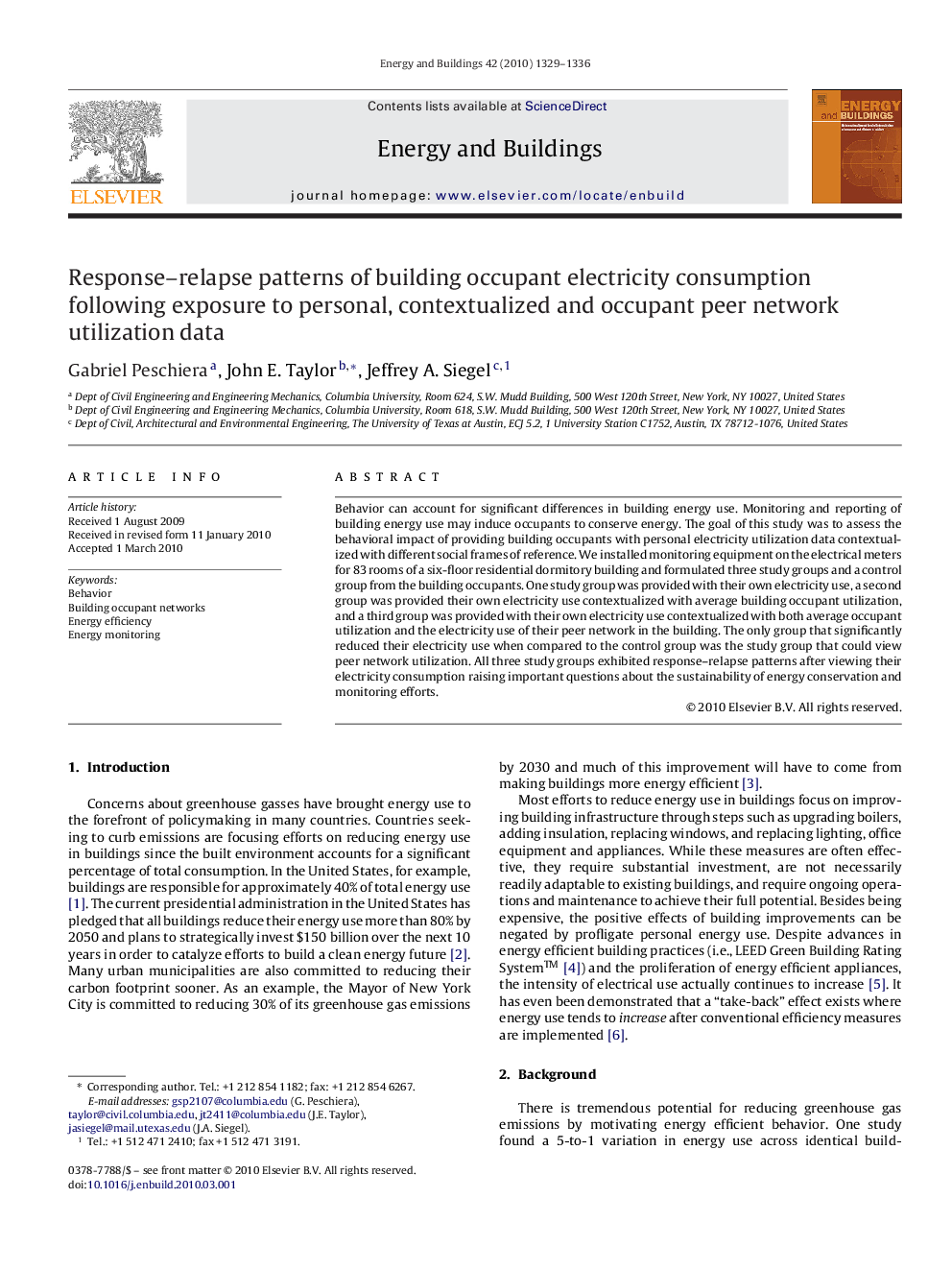| Article ID | Journal | Published Year | Pages | File Type |
|---|---|---|---|---|
| 264784 | Energy and Buildings | 2010 | 8 Pages |
Behavior can account for significant differences in building energy use. Monitoring and reporting of building energy use may induce occupants to conserve energy. The goal of this study was to assess the behavioral impact of providing building occupants with personal electricity utilization data contextualized with different social frames of reference. We installed monitoring equipment on the electrical meters for 83 rooms of a six-floor residential dormitory building and formulated three study groups and a control group from the building occupants. One study group was provided with their own electricity use, a second group was provided their own electricity use contextualized with average building occupant utilization, and a third group was provided with their own electricity use contextualized with both average occupant utilization and the electricity use of their peer network in the building. The only group that significantly reduced their electricity use when compared to the control group was the study group that could view peer network utilization. All three study groups exhibited response–relapse patterns after viewing their electricity consumption raising important questions about the sustainability of energy conservation and monitoring efforts.
